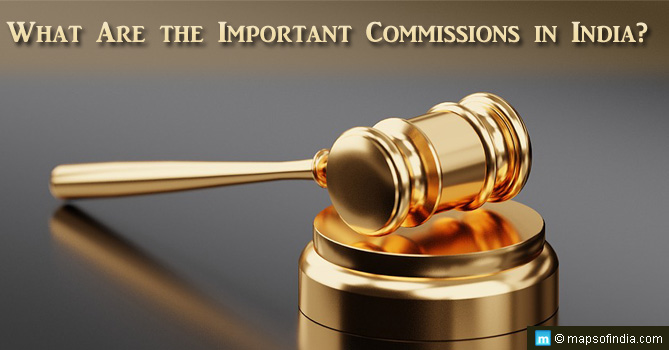
Government of India has constituted many commissions over the years that provide guidance, advice, and solutions on multifarious issues, either to the parent ministry under which they have been constituted or to the Prime Minister directly. These Commissions are either permanent in nature or ad hoc.
Permanent Commissions:
Election Commission (EC)

Election Commission is a Constitutional Autonomous Body. It is one of the most powerful and effective commissions until now. EC is responsible for conducting elections of the parliament, state legislative assemblies/councils, and offices of the President/Vice President.
Founded: January 25, 1950
Website: eci.nic.in
Union Public Service Commission (UPSC)

UPSC is the premier central recruiting agency that conducts examinations as well as recruitment for All India services and Central services of Group A & B. Other functions of the UPSC include the appointment of officers, framing/amending recruitment rules, civil services’ disciplinary cases, and advising the government on matters that are referred by the President of India to the Union Public Service Commission.
Founded: October 1, 1926
Website: upsc.gov.in
University Grants Commission of India (UGC India)
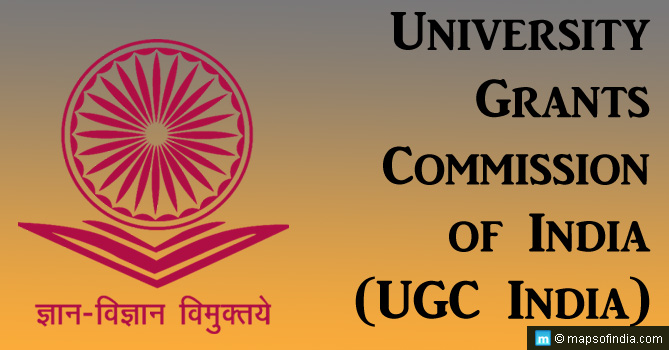
According to the UGC Act 1956, the Union Government set up a statutory body under the Ministry of Human Resource Development. It coordinates, determines, and maintains standards of higher education. UGC India also provides recognition to the Indian universities and disburses funds to the recognized universities/colleges.
Founded: December 28, 1953
Website: ugc.ac.in
Pay Commission
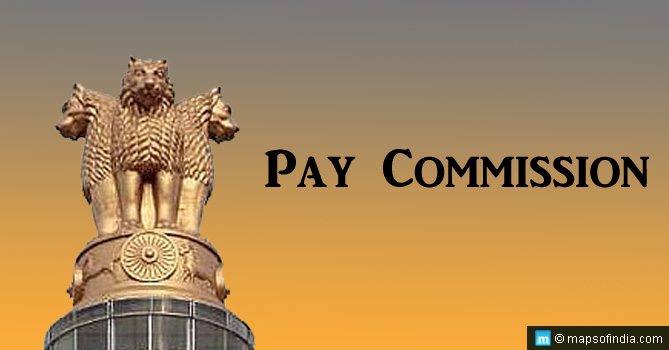
This commission recommends salary structure change for the government (both civil and military) employees. Till now there have been 7 Pay Commissions since independence.
Founded: January 1946
Website: doe.gov.in/central-pay-commission
National Human Rights Commission (NHRC) of India
This is a statutory public body that is responsible for protecting and promoting human rights as defined by the Protection of Human Rights Act.
Founded: October 12, 1993
Website: nhrc.nic.in
Law Commission of India
It is an executive body that works for legal reform and advises the Ministry of Law and Justice.
Founded: 1834
Website: lawcommissionofindia.nic.in
Digital Communications Commission
The Telecom Commission was rechristened as the Digital Communications Commission on October 29, 2018. It is now meant to implement and monitor the National Digital Communications Policy.
Founded: April 11, 1989
Website: dot.gov.in/profile
Finance Commission
It defines the financial relations between the Union Government and the individual state governments. Finance Commission is appointed every 5 years.
Founded: November 22, 1951
Website: fincomindia.nic.in
Central Vigilance Commission
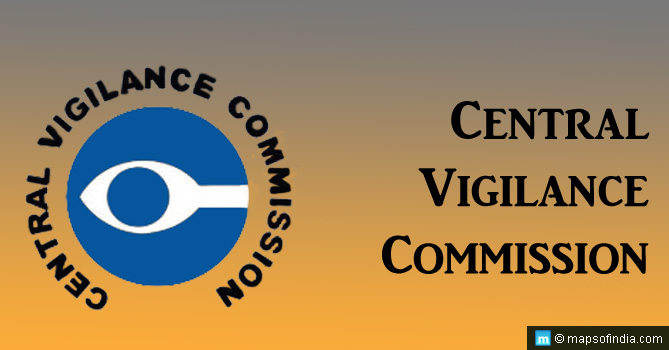
This apex Indian governmental body addresses governmental corruption and also advises Central Government organizations’ authorities on plan/execution/review/reform of their vigilance work.
Founded: February 11, 1964
Website: cvc.nic.in
National Commission for Scheduled Tribes (NCST)
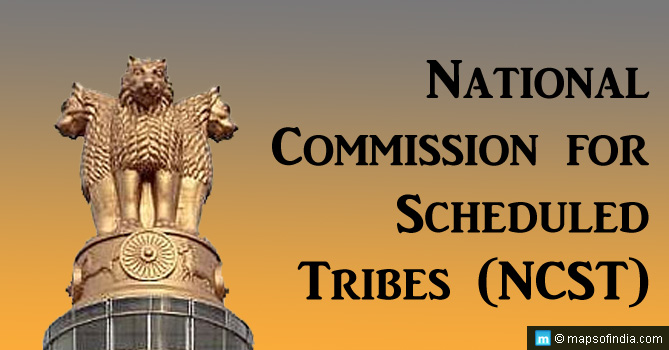
NCST (established through Constitution (89th Amendment) Act, 2003) oversees whether the multifarious Constitutional safeguards given to Scheduled Tribes are being implemented.
Founded: February 19, 2004
Website: ncst.nic.in
National Commission for Scheduled Castes (NCSC)
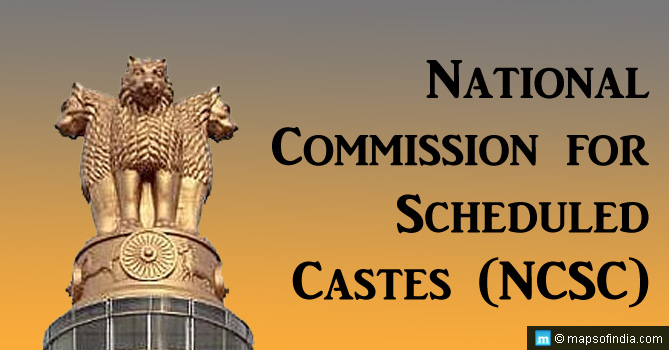
NCSC safeguards the Scheduled Castes from exploitation. It also promotes as well as protects their special provisions and economic/cultural/educational/social interests provided under the Constitution.
Founded: August 1978
Website: ncsc.nic.in
National Commission for Backward Classes (NCBC)
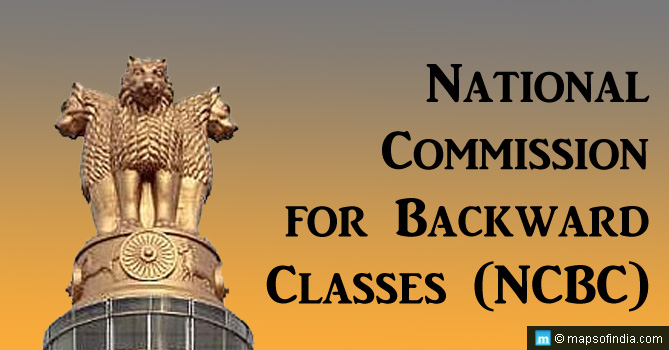
The National Commission for Backward Classes considers inclusions/exclusions of backward communities to/from the list of backward classes.
Founded: August 14, 1993
Website: ncbc.nic.in
National Commission for Minorities (NCM)
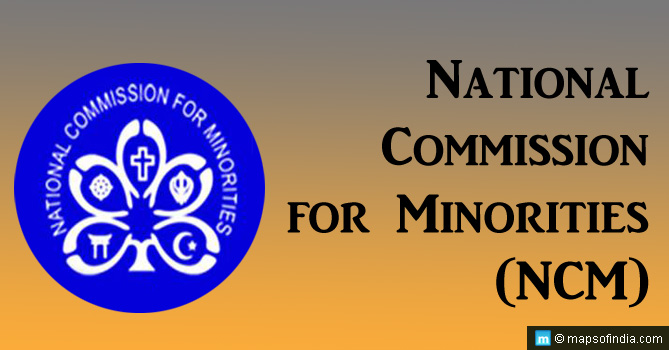
This commission has been set up by the Union Government for safeguarding the constitutional and legal rights, and redress the grievances of people belonging to minority communities. Muslims, Sikhs, Christians, Buddhists, Zoroastrians (Parsis) and Jains have been notified as minority communities by the Union Government.
Founded: 1992
Website: ncm.nic.in
National Commission for Protection of Child Rights (NCPCR)
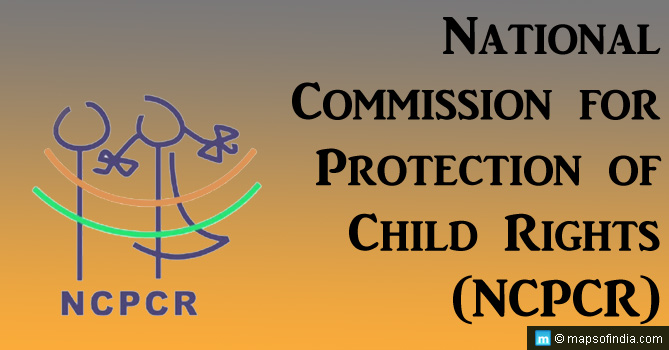
This commission is a statutory body established in 2005, and works under the direction of the Ministry of Women and Child Development. Its mission is to promote the rights and welfare of children in India in accordance with the United Nations Convention on the Rights of Children, 1989, which was ratified by India in 1992. A child is defined as a person up to 18 years of age.
It has to promote safeguards for protection of child rights in different fields, such as inspection of juvenile custodial homes, ensuring free and compulsory education under the Right to Education Act, 2009, and monitor the implementation of POCSO Act, 2012 to prevent sexual offences against children. Its role has been expanded to mediate in child custody disputes in NRI marriages, through a mediation cell that develops a parental plan keeping the best interests of the child in mind.
Agricultural Prices Commission

Agricultural Prices Commission (earlier called Commission for Agricultural Costs and Prices) is a decentralized agency that recommends Minimum Support Prices (MSPs) of crops to the Government of India’s Ministry of Agriculture & Farmers’ Welfare. It also motivates farmers/cultivators in the use of latest technology for optimizing resource use as well as increase productivity.
Founded: January 8, 1965
Website: cacp.dacnet.nic.in
National Statistical Commission (NSC)
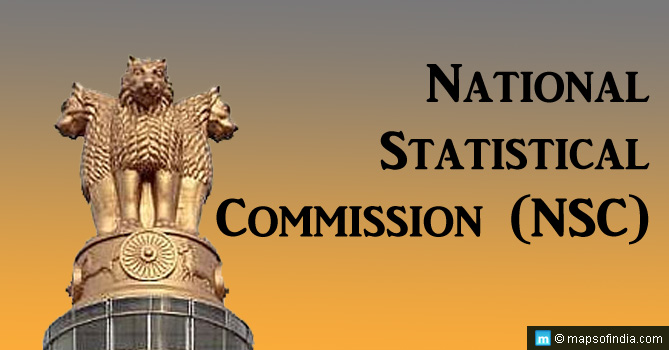
It is an autonomous body that aims at reducing the problems faced by statistical agencies in India during data collection.
Founded: June 1, 2005
Website: mospi.nic.in
The Atomic Energy Commission
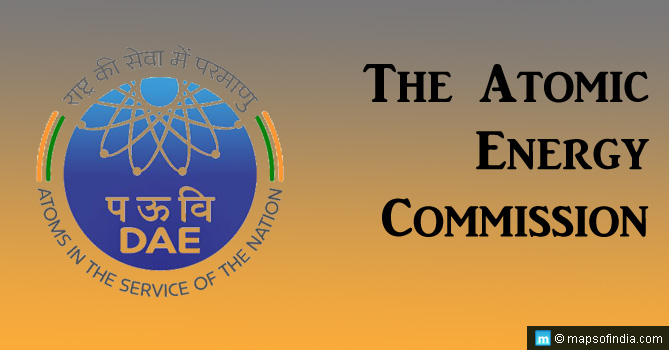
It governs the Department of Atomic Energy and organizes research in atomic science, trains atomic scientists, promotes nuclear research, and undertakes prospecting/extraction of atomic minerals.
Founded: March 1, 1958
Website: aec.gov.in
Competition Commission of India

CCI is a statutory body that prevents any activity that adversely affects competition in India, such as unfair trade practices.
Founded: October 14, 2003
Website: cci.gov.in
Khadi and Village Industries Commission
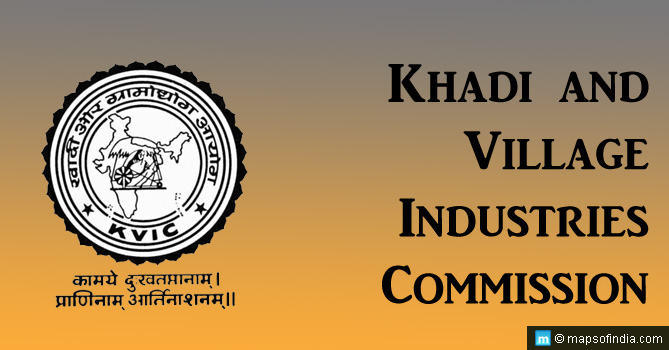
This is a statutory body formed under the Ministry of Micro, Small and Medium Enterprises. It plans, promotes, organizes, and implements the development of Khadi and other cottage industries.
Founded: 1956
Website: kvic.org.in
The above mentioned permanent commissions are the most effective ones. However, there are others too such as National Commission for Enterprises in the Unorganised Sector, National Commission on Cattle, Central Water Commission, Census Commission, National judicial appointments commission, Staff Selection Commission, and many more. Apart from them, there are commissions at the State level, such as State Women’s Commission, State Minorities Commission etc.
Ad-Hoc Commissions:
Some of the most important Commissions set up by the Central Government are States Reorganisation Commission, Kothari Commission, Khosla Commission, Kapur Commission, Mandal Commission, Nanavati-Shah commission, Nanavati Commission, Mukherjee Commission, Sarkaria Commission, Shah Commission, Liberhan Commission, Narendran Commission, and many more.
Related Links:
Important Abbreviations related to Government bodies and programmes





